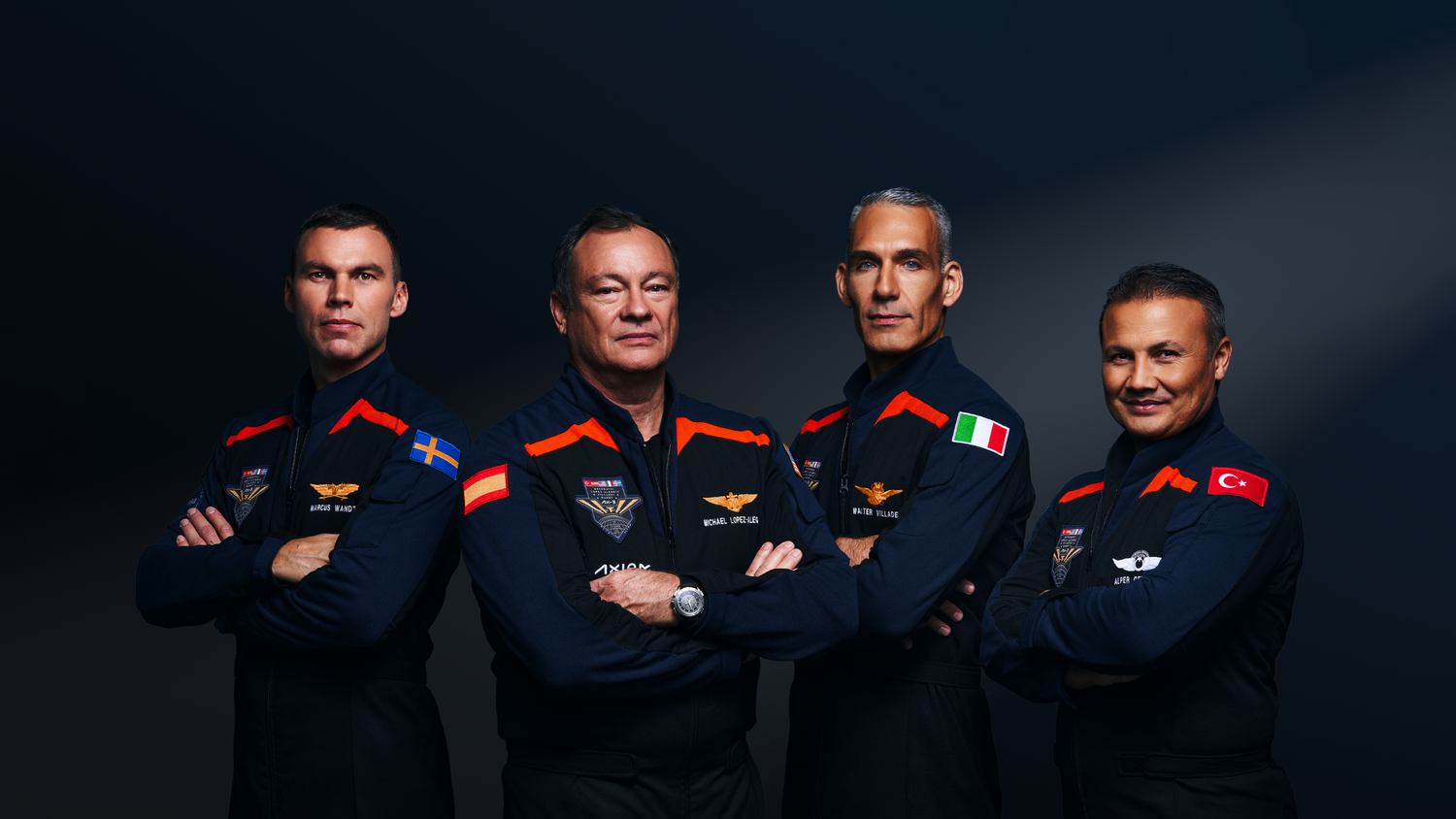
Houston-based Axiom Space is poised for the company's third private astronaut launch to space. Ax-3 will carry a four-person, all-European crew on a roughly two-week mission to conduct research aboard the International Space Station (ISS).
The quartet includes Ax-3 mission commander and former NASA astronaut Michael "LA" López-Alegría, mission specialist Walter Villadei, who also flew aboard Virgin Galactic's Galactic 01 suborbital spaceflight as VIRTUTE 1 mission commander last summer, Turkey's soon-to-be first astronaut, Alper Gezeravcı and European Space Agency (ESA) astronaut reserve member Marcus Wandt.
The Ax-3 crew will launch on a SpaceX Falcon 9 rocket in the early evening, Wednesday, Jan. 17, from NASA's Kennedy Space Center (KSC), in Florida. After about 36 hours aboard their SpaceX Crew Dragon spacecraft, the crew will dock with the ISS early Friday morning, Jan. 19, if all goes according to plan.
The Ax-3 crew is scheduled to spend 14 days aboard the ISS, following their arrival on Friday, Jan. 19. Barring any weather delays, like the ones that prolonged the return of Ax-1, the four-person crew is scheduled to return after two weeks' time aboard their Crew Dragon capsule, parachuting back to Earth for a splashdown off the coast of Florida.
Live updates: Axiom Space Ax-3 private spaceflight with SpaceX: Live updates
Photos: The first space tourists
Michael López-Alegría
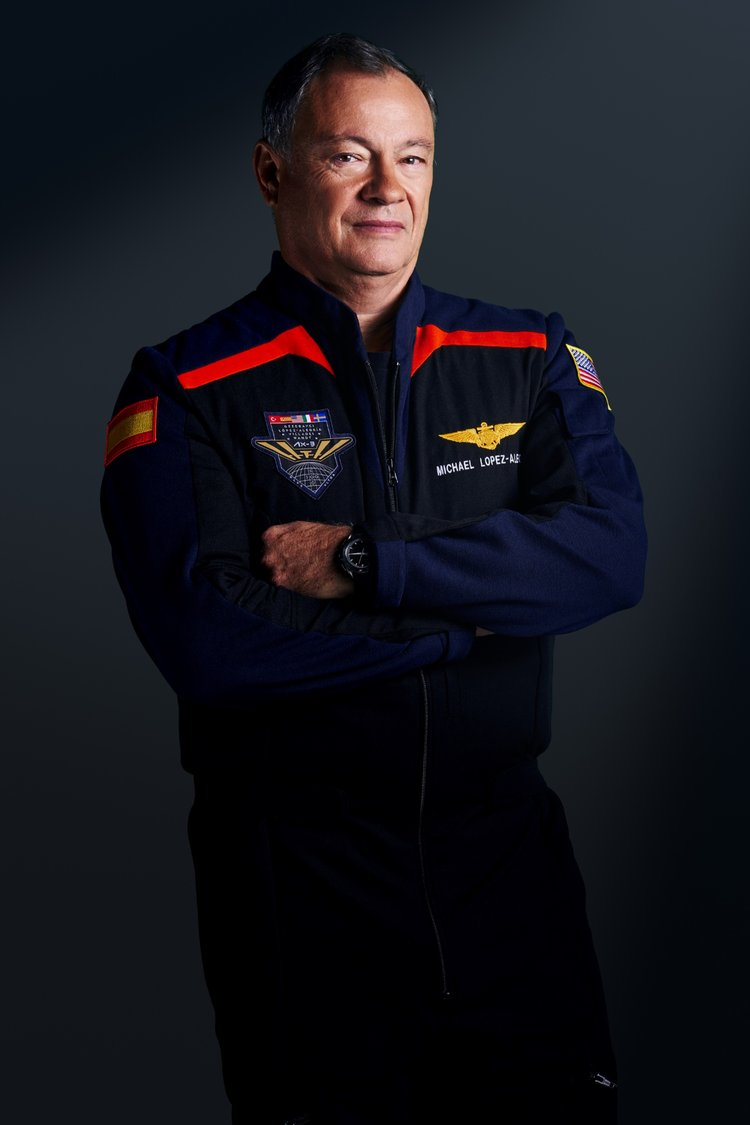
Former NASA astronaut Michael "L.A." López-Alegría is no stranger to spaceflight. Ax-3 will be his sixth launch to the ISS, and he has no plans of quitting anytime soon. "It's a dream come true for me," L.A. told reporters during a Jan. 11 crew teleconference, "I will gladly continue to fly as long as the soul is willing, and as long as the body is willing to do so."
L.A. was born in Madrid, and came to the U.S. with his parents as a young child. Combined, he has more than 40 years of aviation and spaceflight experience, which includes three Space Shuttle launches and a Soyuz launch. He was inducted into NASA's Astronaut Hall of Fame in 2020, and currently holds the space agency's record for cumulative time spent on space walks, or extravehicular activities (EVAs). L.A. now works as Axiom's chief astronaut.
López-Alegría flew as mission commander for Ax-1, and is proud to be reprising that role for Ax-3, he said during Thursday's call.
"I'm very proud and pleased to be leading this mission to the International Space Station, which is important not just for the scientific research and technology demonstrations and outreach events that we'll do, but also it's a very important step toward the goal of Axiom space to have a commercial space station in orbit before the decade is out."
Axiom Space is constructing its own habitation module to berth to the ISS, which it plans to build out and eventually detach to become its own private space station. Throughout development, crews from each of the company's commercially-funded missions to the ISS work, in part, toward helping Axiom reach that goal.
Walter Villadei
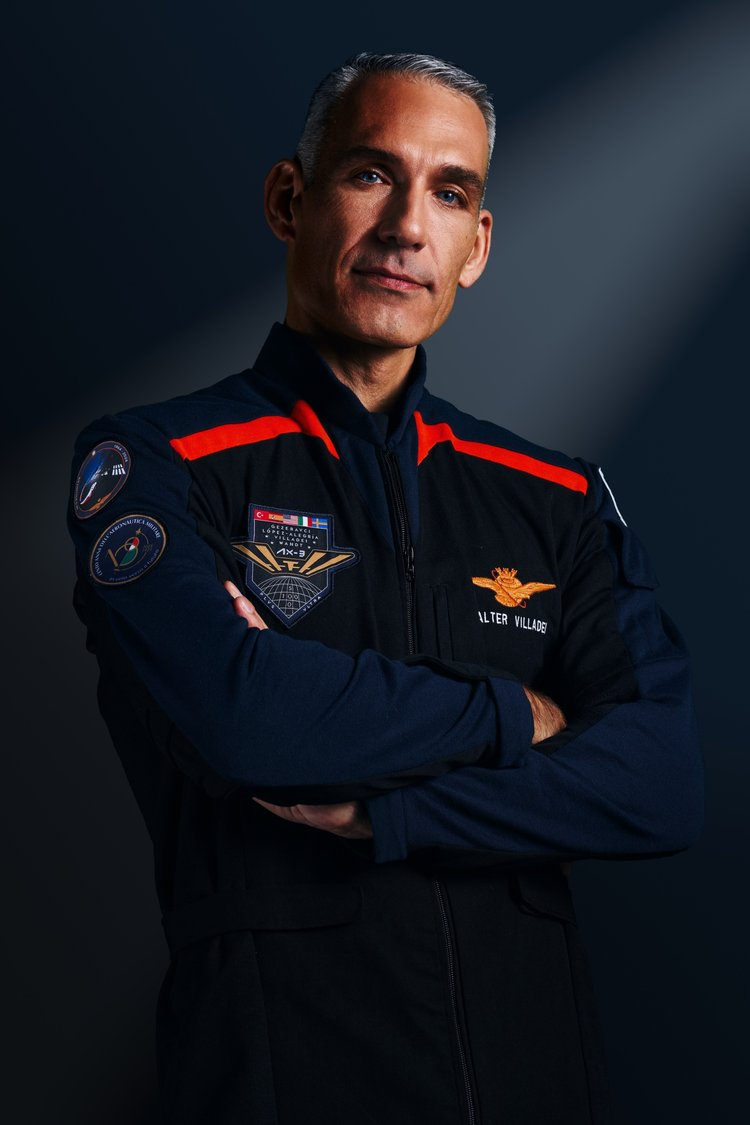
This also isn't the first spaceflight for Ax-3 mission pilot Col. Walter Villadei. Villadei hails from Rome, Italy, and serves as a colonel in the Italian Air Force (ItAF). His background includes extensive military flight experience with the ItAF, as well as assignments in the space sector, which sent him to Star City, Russia, to with the Russian space agency (Roscosmos) as a Soyuz flight engineer.
Currently, Villadei works as the head of ItAF's representative office in the U.S., overseeing commercial spaceflight initiatives.
He flew on a sub-orbital flight to space with Virgin Galactic in June 2023, where he served as VIRTUTE-1 mission commander. At the time, he said that flight would help prepare him for upcoming, longer spaceflights.
"This mission is very important for Italy," Villadei said during the Jan. 11 briefing, calling Ax-3 a "fundamental step" in Italy's national space strategy. "It's a big opportunity for bringing industries of the scientific community and institutions into this new chapter for space exploration."
Alper Gezeravcı
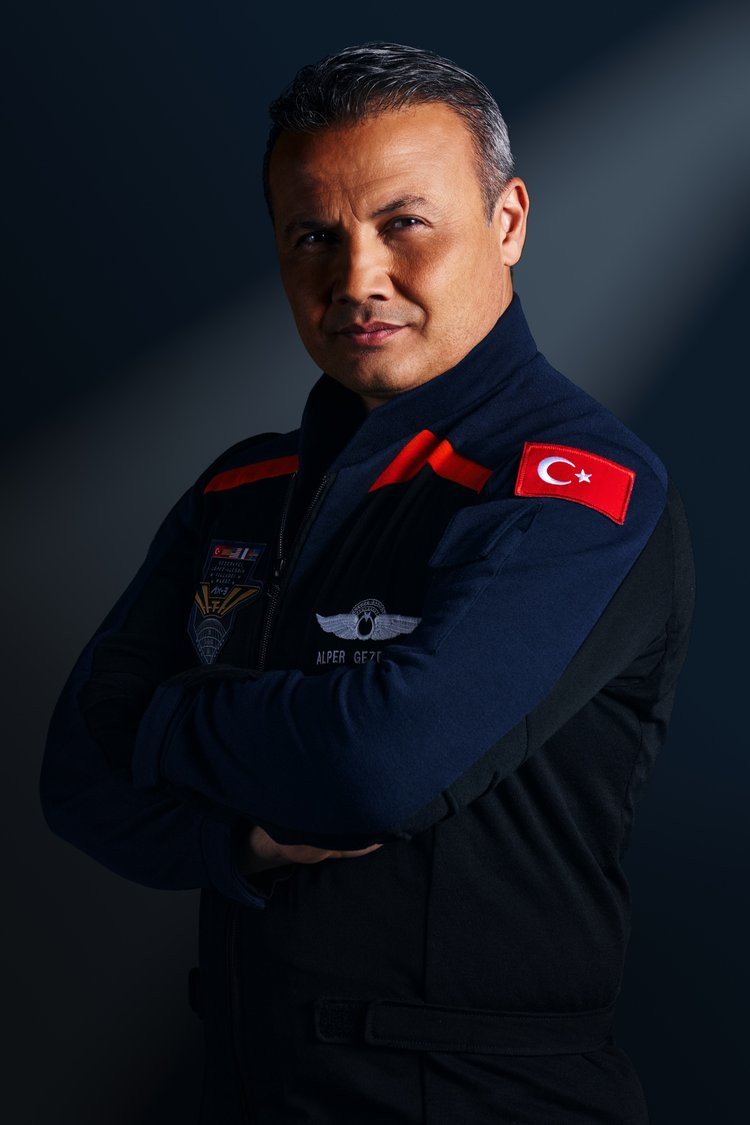
Alper Gezeravcı will fly as Turkey's first astronaut. The Ax-3 mission specialist holds degrees from the Air Force Academy in Istanbul, and the Air Force Institute of Technology at Wright-Patterson Air Force Base, in Ohio, and has 15 years experience flying as a fighter pilot for the Turkish Air Force.
On Thursday's call, Gezeravcı acknowledged the significance of his country sending someone to space, but said he doesn't want that fact to overshadow the mission's contribution to the global scientific community.
"I'm representing my beautiful country, Turkey, as the first person to go to space," Gezeravcı said, "however, this mission is not only focused on the first manned mission, but it's also representing a lot of scientific missions that we are intending to contribute in the science world."
Like Axiom's previous missions, much of the research conducted by the Ax-3 crew will focus on the effects of long-term spaceflight and the effects of microgravity on the human body, with an emphasis on how that research can have beneficial applications down on Earth. Turkey's Vokalkord experiment, for example, is developing artificial intelligence to detect disease through analyzing audio of people speaking and coughing.
Marcus Wandt
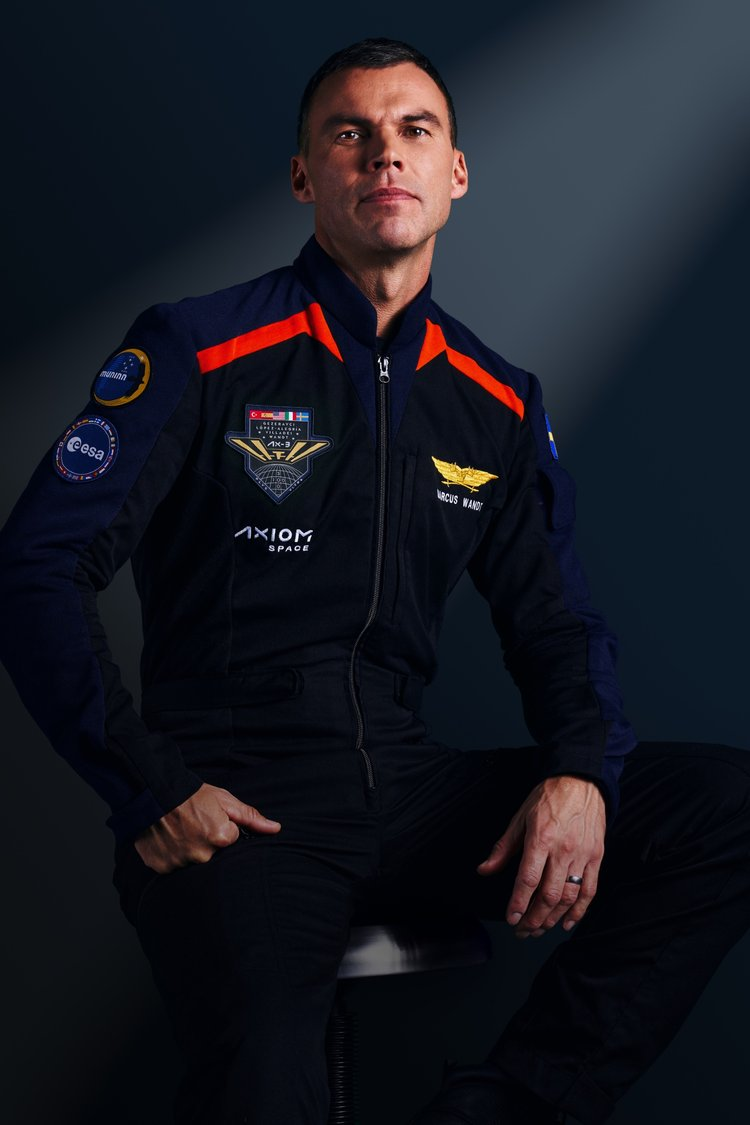
Another fighter pilot, Marcus Wandt has more than 20 years experience in the air, serving in the Swedish Air Force. From fighter pilot, Wandt worked his way up to the role of chief test pilot, and eventually founded his own company to give tactical training to other pilots.
Now, Wandt is a lieutenant colonel in the Swedish Air Force and a member of ESA's astronaut reserve, and will be the second person from Sweden to fly to the ISS. For Ax-3, he will serve as a mission specialist.
"The decisiveness of how Sweden came together with ESA and Axiom, and all the support from NASA and SpaceX to make this happen is fantastic," Wandt said during the Ax-3 crew teleconference.
"I'm so proud to be in the center of that, and being a part of pioneering a new way for Europe to gain access to space and to increase the frequency ... of not only European presence but also European science, and the benefit for what we can do here on Earth that brings everyone forward."







